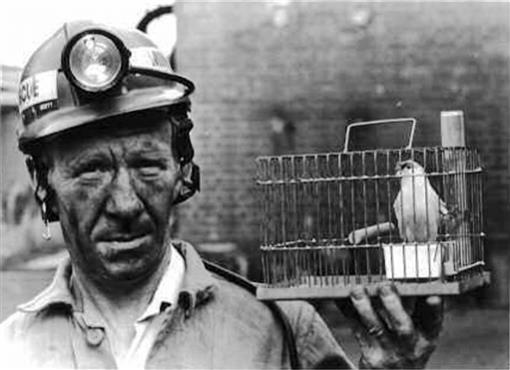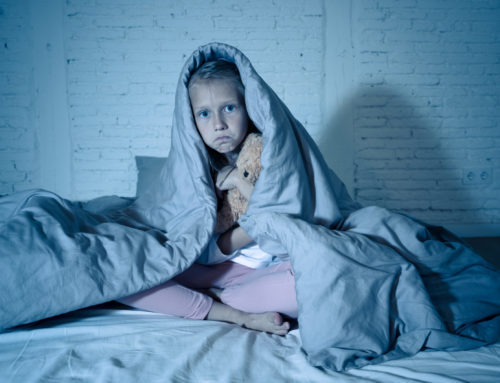by Tom McSheehy MSW, LSW
Our young people are experiencing a mental health crisis with high rates of anxiety, depression, and suicidal ideation. Highly Sensitive Children (HSC) often grapple with mental health issues and loneliness. This is due to their extraordinary ability to feel and sense everything so deeply. In my opinion, many of the teenagers and young adults who commit suicide are probably highly sensitive.
Characteristics Of Highly Sensitive Children
All children are sensitive, but 15-20% of children are highly sensitive. Many of these children find the world an overwhelming and challenging place. Highly sensitive kids perceive, feel, and process sensations and feelings more intensely than young people who don’t have a heightened sensitivity. Because they have heightened sensitivity, intense experiences and environments can overwhelm their nervous systems. This can lead to emotional meltdowns and to being scared and hesitant to try to new things.
Sensitivity is a form of intelligence and can be a tremendous gift for children if they receive the support that they need. Here are the characteristics of highly sensitive children:
- Feels and senses deeply
- Is a perfectionist
- Doesn’t like scratchy clothing or labels against the skin
- Often very cautious with new experiences
- Startles easily
- Worries a lot
- Prefers quiet play and just a few, select friends
- Works very hard, diligent to a fault
- May be less independent than other children
- Dislikes staying aware from home
- Complains of stomach aches and headaches
- May be physically awkward or tense
- Is very sensitive to pain
- Is bothered by loud noises or noisy places
- Is sensitive to discipline or criticism
- Very insightful, intuitive
- Very aware of the feelings and distress of others
- Wants to please others
- Difficulty getting to sleep after an exciting day
- Asks a lot of questions
- Notices the slightest unusual odor
- A lot of changes are challenging
- Difficult to perform when strangers are watching
- Susceptible to bullying
HSC can be more susceptible to thoughts of suicide. In my opinion, many teen suicides are probably HSC who feel overwhelmed, weird, and alone. When HSCs’ nervous systems and brains are overwhelmed with sensory input, they try to calm themselves by isolating and being alone. The lack of understanding and quality support from adults and the shame that HSC sometimes feel can cause them to isolate even more. Too much isolation is not good for the brain and for mental health. Isolation will cause anxiety issues to worsen and a sense of despair and hopelessness to set in.
Strengths and Gifts
Many misperceptions about HSC are common. The belief that HSC are weak and fragile is common. It is quite inaccurate. HSC are resilient and strong. In order to get a sense of the strength and resiliency of HSC, just imagine any painful sensation or uncomfortable emotion that you have experienced in your life and multiply the intensity of it by x5, x10, x20. That’s what a HSC is having to experience on a daily basis. It takes a lot of strength to feel that level of intensity for sensations and emotions and keep going in life. It is like HSC are carrying a backpack weighing 60 pounds of added intensity connected to their sensations and emotions.
High sensitivity is a form of intelligence and many wonderful qualities are connected to being highly sensitive. HSC can be very caring, empathetic, conscientious, and intuitive. They can be very concerned about the welfare of other people, animals, and the earth. Because of these qualities and the ability to feel what others feel, they can do really well in a variety of jobs working with people.
HSC are like canaries in the coal mine. Coal miners long ago use to bring canaries in a cage into the mine as protection against toxic, dangerous gases like carbon monoxide. If the canary died, the coal miners knew that they needed to get out of the mine because there were high levels of toxic gases.
HSC are like sensitive instruments that can give adults a reading of the level of social emotional stress in a home.
When I was young, I didn’t like my sensitivity because the adults around me didn’t know how to support me and to be with me. I have learned as an adult to appreciate and value my sensitivity and to support myself in a world that can be very intense at times. Being sensitive has made my life more challenging and difficult, but it also has enriched it profoundly and deepened my relationships with others and myself. Being sensitive is a quality that has helped me to be an excellent teacher and social worker.
Parenting A Highly Sensitive Child
When you are with a HSC, you can witness a wide range of behaviors and emotions including empathy, kindness, reactivity, anger, sadness, happiness, despair, fear, love, and hurt; and often their behavior and emotional expression have a level of intensity to them. Paying attention to what you are experiencing can help parents, teachers, and coaches to have empathy for the intensity of what HSC feel and perceive.
HSC can get overwhelmed with the speed of life and all the stimulation and sensory input that bombards our lives. It can be quite confusing for HSC because adults often get frustrated with them. All children and teenagers are trying to learn how to identify, feel, and manage their emotions and sensations and how to self-regulate and self-soothe. All children and teenagers can get overwhelmed and overstimulated which can cause them to have meltdowns or act out or withdraw and isolate.
This very important social emotional learning skill of self-regulating and self-soothing is especially challenging for HSC because their emotions and sensations are experienced so intensely and deeply. Adults often get frustrated with interacting with HSC and trying to support them. HSC can hear and feel this frustration from adults, and they feel like the frustration is about them and who they are. HSC can start feeling like something is wrong with them because adults get aggravated with them. When adults get emotionally triggered and overwhelmed, they can say hurtful comments toward a HSC. You are too sensitive! You need to lighten up! You need to toughen up! You take things too seriously! I have heard these words at times in my life. The word, “too”, definitely adds a tone of judgement to these words. Yes, I myself am very sensitive, but I’m not too sensitive.
Because 80% of humans are not highly sensitive, HSC can feel quite different in how they see, feel, and react to life’s sensory input. This feeling that something is wrong with them can run deep. HSC often feel a profound sense of loneliness because they often feel like adults and peers don’t understand them. For adults who are not highly sensitive, it is hard for them to understand and empathize with a HSC’s emotional intensity, crying, avoidance of risk, fear of separation, and overwhelm to sensory input and emotional experiences. Being different and sometimes acting different can set HSC up for teasing and bullying from other students or youth.
It can be very challenging to be a parent of a highly sensitive children, and it can also be very rewarding. Often parents want to unconsciously or consciously change HSC or fix them so they don’t feel so deeply and intensely. Some parents believe that HSC aren’t strong enough to survive this challenging world, and they get scared. They try to toughen up their HSC which adds to the youth’s belief that something is wrong with me or my parents don’t like who I am. As I reflect on growing up, it felt like my dad didn’t like me. I have come to realize as an adult that my dad was not comfortable with my sensitivity because he was not comfortable with his own sensitivity.
If parents are highly sensitive themselves, they can project their own issues with being highly sensitive onto their HSC. As a result, they can overprotect their children because it is very difficult to watch your children experience uncomfortable and intense sensations and emotions. If parents aren’t highly sensitive themselves, they can sometimes be too tough and hard on their HSC.
Highly sensitive persons (and this includes children and adults) often describe experiencing big feelings or sensations because the sensory information they’re receiving comes in so much more strongly than it does for other people.
The old stereotype of strength in a man is to be emotionally stoic and not feel or express any emotion, and to not ask for any social emotional help or support. In the old definition of strength, being vulnerable and sharing your fear, hurt, or sadness was a sign of weakness. We have learned through neuroscience and research that feeling and expressing emotions constructively is vital for mental and physical health and for effective communication.
HSC are very prone to anxiety and depression because they feel so deeply. When parents bring their children into see family doctors or pediatricians, they often don’t know about characteristics of highly sensitive youth. Doctors will often put these HSC on anti-anxiety or anti-depression medications because they don’t know what else to do. This band-aid approach can mask the root causes of anxiety or depression which often are connected to being sensitive and not having the tools or knowledge to effectively deal with all the overload of sensory input in the world. In some ways, HSC are much more aware of the effects of too much sensory and emotional input and too little time to slow down and calm our nervous systems.
Along with all the strengths and gifts that highly sensitive children display, they also can require more support, guidance, and patience. Parenting a highly sensitive child definitely necessitates some different knowledge and skills so you can empower your child. It can be draining and frustrating to parent a highly sensitive child; the hypersensitivity in children relative to adults is heightened for highly sensitive children. There are so many things, from the tightness of clothes to the flavor of food to the intensity of energy in a room, that can irritate or cause a negative reaction from a highly sensitive child.
Important Steps For Parents of Highly Sensitive Children
Here are the most important action steps for parents:
- Learn as much as you can about being highly sensitive.
- Educate your children about the qualities of being highly sensitive and its benefits and challenges.
- Explore your pain from growing up highly sensitive and get the support of a therapist who is aware of what it means to be highly sensitive and how to support and gently challenge a highly sensitive individual.
- Support them in learning to cope with environments that are over stimulating.
- See your emotionally sensitive child as strong and resilient. Affirm them for who they are and what they bring to the world.
- Take a class on highly sensitive youth. Classes connected to supporting parents of HSY will be offered online starting in the summer from Teaching Heart Institute. You can sign-up for Teaching Heart Institute’s newsletter below so you can be alerted when new classes are available.





